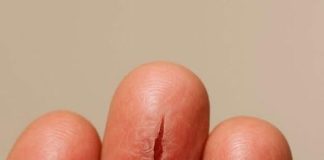Japanese Water Therapy is a traditional wellness practice that involves consuming several glasses of room-temperature or warm water immediately after waking up. Proponents of this method believe it offers various health benefits, including improved digestion, detoxification, and enhanced metabolism. While some claims lack scientific backing, the practice emphasizes hydration and mindful eating, which are universally recognized as beneficial.
Understanding Japanese Water Therapy
The core principle of Japanese Water Therapy is to start the day by drinking water on an empty stomach. Typically, individuals consume four to five glasses (approximately 160 ml each) of room-temperature water upon waking, before brushing their teeth. After this, they wait for about 45 minutes before eating breakfast. During meals, it’s recommended to eat within a 15-minute window and then refrain from eating or drinking anything else for at least two hours.

This routine is believed to cleanse the digestive system, regulate gut health, and promote overall well-being. Some advocates suggest that cold water should be avoided, as it may solidify fats and oils in the digestive tract, potentially slowing down digestion and leading to health issues.
Potential Health Benefits
While the specific claims of Japanese Water Therapy curing various ailments may be overstated, the practice does encourage habits that are beneficial to health.
1. Enhanced Hydration
Starting the day with water intake ensures that the body is adequately hydrated, which is essential for various bodily functions, including temperature regulation, joint lubrication, and nutrient transportation. Proper hydration can also prevent issues like constipation, headaches, and kidney stones.
2. Improved Digestion
Drinking water on an empty stomach can stimulate the digestive system, promoting regular bowel movements and aiding in the elimination of waste. This can lead to better nutrient absorption and overall digestive health.
3. Detoxification
Adequate water intake supports the body’s natural detoxification processes by flushing out toxins and waste products through urine and sweat. This can contribute to clearer skin and improved organ function.
4. Metabolism Boost
Some studies suggest that drinking water can temporarily boost metabolism, leading to increased calorie burning. This effect, combined with the practice’s structured eating schedule, may support weight management efforts.
5. Mindful Eating Habits
The therapy’s emphasis on timed meals and intervals between eating encourages mindful eating practices. This can lead to better portion control, reduced overeating, and a more conscious relationship with food.
Considerations and Precautions
While Japanese Water Therapy promotes healthy habits, it’s essential to approach it with caution:

- Overhydration Risks: Consuming excessive amounts of water in a short period can lead to water intoxication or hyponatremia, a condition where sodium levels in the blood become dangerously low. It’s crucial to listen to your body’s signals and not force excessive water intake.
- Individual Needs Vary: Hydration requirements differ based on factors like age, activity level, and climate. It’s important to tailor water intake to individual needs rather than adhering strictly to a set amount.
- Medical Conditions: Individuals with certain health conditions, such as kidney disorders or heart issues, should consult healthcare professionals before making significant changes to their hydration habits.
Conclusion
Japanese Water Therapy underscores the importance of hydration and structured eating, both of which are integral to overall health. While some of its claimed benefits lack scientific validation, the practice promotes mindfulness and discipline in daily routines. As with any health regimen, it’s advisable to consult with healthcare providers to ensure it aligns with individual health needs and conditions.

















